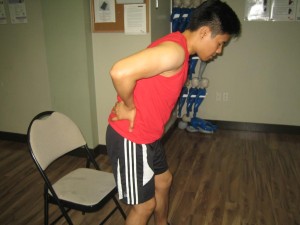A herniated disc is defined as a disc that protrudes out from its normal position in the back or neck. The discs function as shock absorbers amidst every spinal bone. Once a disc protrudes, it might crush on adjacent nerves and trigger pain and other accompanying symptoms.
This typically occurs from wear and tear on the spine as part of the aging process. Oftentimes, it is due to an injury. One is at higher risk if the back is strained.
What are the signs?
The indications of a herniated disc might manifest steadily or abruptly. The symptoms are based on the site of the herniated disc in the spine.
The usual signs include:
- Numbness
The indications of a herniated disc might manifest steadily or abruptly. The symptoms are based on the site of the herniated disc in the spine. - Back pain
- Tingling sensation
- Weakness in the shoulders, buttocks, arms or legs
Management of a herniated disc
If an individual is diagnosed with a herniated disc, the doctor might suggest the following:
- Adequate rest – the individual should remain active and avoid staying in bed longer than 1-2 days
- Medications – various drugs are given to reduce the discomfort. It might be an oral medication, or a steroid shot administered into the spine.
- Physical therapy – this might include massage, traction or other treatment options. Exercises are also given to strengthen the back.
- Neck collar or brace – using a brace for a brief span of time can keep the neck in the correct position as it heals
With treatment, the discomfort caused by a herniated disc should settle in a few weeks but there might still be some pain that lasts for a few months. If any symptoms are present, the doctor might suggest surgical intervention.
Quick Note / Disclaimer
The material posted on this page on a herniated disc is for learning and educational purposes only. To learn to recognize the signs and how it is managed, register for a first aid and CPR course with Mississauga First Aid.

